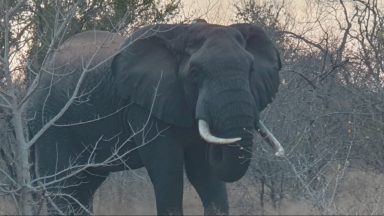In Nyika National Park, Peace Parks Foundation’s Counter-Poaching Coordinator, Norman English, films the rapid response unit in the middle of their early morning fitness run with canines Jungle, Nkonzo and AK. This unit plays a crucial role in protecting the wildlife in the park by detecting any signs of illegal activity. As they are required to operate under tough conditions that often require patrolling vast expanses of wilderness on foot, it is extremely important that they keep fit.
As Malawi’s oldest national park, Nyika forms a vital part of the Malawi-Zambia Transfrontier Conservation Area and sits on a high undulating montane grassland plateau which rises out from the bushveld below. Often shrouded in a layer of mist, Nyika will blow nature-lovers away with its multitude of wildflowers, including 214 species of orchids, of which 30 are endemic to the park.
To assist with the rewilding of this unique area, the Malawi Government, with support from Peace Parks Foundation and funding from KfW Development Bank, has been involved in rewilding programmes since 2007. Home to Africa’s highest concentration of roan antelope, three of the Big 5 (buffalo, elephant and leopard) and a host of different plains game, counter-poaching efforts have been ramped up to ensure that the wildlife are kept safe.
To overcome the challenge of a limited road network and poor road conditions throughout the park, Peace Parks has been instrumental in putting strategies in place to significantly strengthen the counter-poaching units. This has been done by training a rapid response unit, as seen in the video above, which consists of highly trained rangers and the canine unit that can cover significant ground in a very short period.
Peace Parks is grateful for the dedication, commitment and long hours of fitness training that the rapid response team continuously puts into protecting Africa’s incredible wild spaces.

